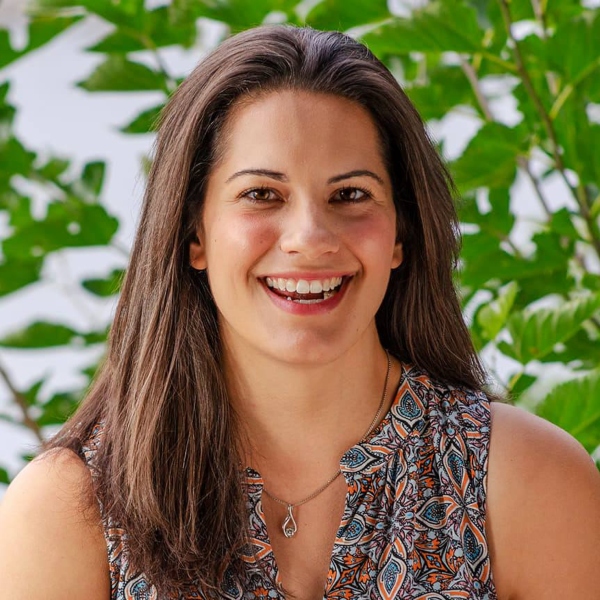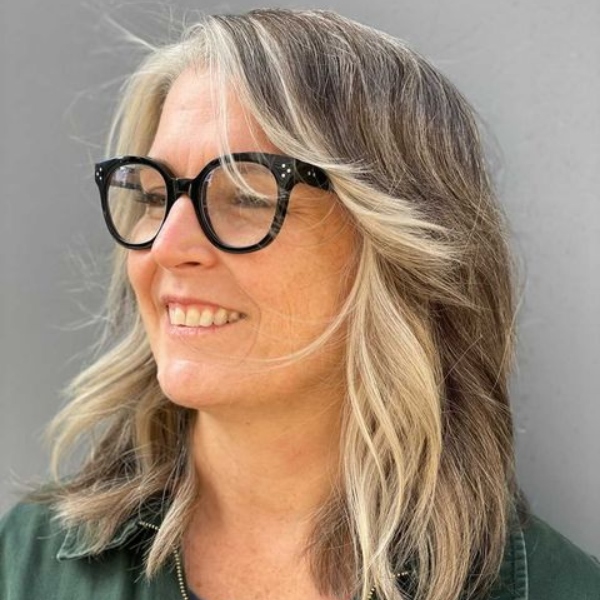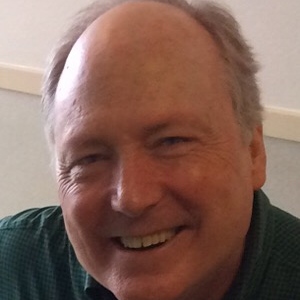Faculty Feature: Kelly Bylica

When Kelly Bylica first began her teaching journey, she could be found teaching music to middle school students in Chicago. It wasn’t until she was graduating with her Master’s degree in Music Education that she discovered another love – philosophical and research-oriented teaching in higher education.
As an Assistant Professor of Music, Music Education at BU, Bylica teaches in the online and on-campus graduate programs.
In this CFA Faculty Feature, Bylica shares with CFA what she finds most rewarding in teaching music educators from around the world. She works with students seeking careers in higher education or arts administration and policy, others who want to continue being public or private school teachers, and those who are working towards a Ph.D. and growing as researchers.
Bylica also dives into the BU Music Education program‘s 100% job placement rate and her appreciation for working in an open and collaborative music education department.
Q&A
AN INTERVIEW WITH KELLY BYLICA
CFA: How and when did you know that you wanted to teach music teachers?
Bylica: I actually wasn’t interested in working in higher education when I first started out as a teacher. I was teaching middle school music in Chicago, and I loved it. I loved working with young people at such a fascinating time in their lives. While I was teaching, I completed a Master’s degree in music education at Northwestern University. As I completed that program, I realized how excited I was by the philosophical and research-oriented thinking we were doing. I decided to put a hold on my teaching and pursue a doctorate at the University of Western Ontario. While there, I worked with pre-service teachers. I felt like I found a group of people who loved working with kids as much as I did and who also wanted to think critically about what it meant to be music educators. I found this was just as fulfilling as working with young people. I think that was the point at which I felt like I wanted to do this for a career.
CFA: You teach BU music education graduate students at various levels and in various ways because you teach in both the online and on-campus programs?
Bylica: Yes! Depending on the year, I teach various online and on-campus graduate courses, including some within our licensure program. I also work with our doctoral students in music education as both a supervisor and committee member. I have touchpoints throughout our programs.
CFA: Our programs, whether offered online or on-campus, are equally rigorous. The online students are a particularly interesting cohort. What do you enjoy most about teaching them?
Bylica: We bring the same critical lens to music education in both programs. Both programs challenge students to learn and grow in new ways, to stretch their thinking, and to consider all of the varied ways they can and do make an impact in the world. This means that the coursework, the expectations, and the degrees are of equal rigor whether a student is in the on-campus or the online program.
While each group brings its own unique perspectives and character to the program, I have been so impressed by the level of community in our online cohorts. The students really care for and support one another. One of the other wonderful things about teaching online students is that most of them are practicing educators while enrolled in our graduate program. We can have a conversation about something, and they will say, “Well, last week, in my sixth-grade class, I was able to apply things we’ve talked and read about.” I love that they bring immediate practical applications to their classrooms with the students in their schools, studios, and community centers. Our conversation is often about the connection between theory and practice, which is so critical in the field.
One of the other wonderful things about teaching online students is that most of them are practicing educators while enrolled in our graduate program. We can have a conversation about something, and they will say, ‘Well, last week, in my sixth-grade class, I was able to apply things we’ve talked and read about.’ I love that they bring immediate practical applications to their classrooms with the students in their schools, studios, and community centers.
CFA: How about the on-campus students?
Bylica: Our on-campus students come from a variety of backgrounds. Some of them have taught in various capacities, others have earned undergraduate performance degrees, and are looking to now pursue a music education master’s degree. Of course, one of the benefits is that we are together, and our conversations can spill over into our getting coffee after class to talk about something a student wants to keep discussing. We have a laboratory space to experiment and explore some of the practical applications we cover in class.
On-campus students are fully immersed in the music education experience and BU experience which enrich each other. One of the things I love about both programs is that we have students from all over the world. It’s a real strength of BU that in every class we have a variety of experiences and ways of seeing the world that contribute to rich discussions which leads to dynamic applications in practice.
CFA: BU’s Music Education Department is one of the largest in the country. Does this mean students can find a faculty member who shares their interests or who has had an experience they’d like to know more about?
Bylica: Absolutely, the size of our faculty is one of the great strengths of the program. We have enough shared vision that we all see the possibilities for critical, thoughtful, meaningful music education. But we enter the conversation from different directions. I often come from the standpoints of curriculum and policy, particularly viewed with a critical lens. But I have colleagues who come from the standpoints of eco-justice, care, sociology, mentorship, popular music, early childhood, etc. So, while students can find someone who shares their interests, they’ll also have other faculty members pushing them to think in new ways which provides them with a more holistic educational experience.
CFA: Is it fair to say that the Music Education faculty believes that music belongs to everyone and that the widest number of people should be able to experience and create it?
Bylica: That’s exactly right. One of the things we all ask is, “What does it mean to make music at this time, in this place, with these people?” This means that we have to think about context, inclusivity, diversity, and access. It also means that we believe in questioning taken-for-granted norms that exist in the field. At the heart of our practice, though, is people and thinking about the ways in which people interact with themselves, with others, and with their world through music. These ideas run through all of the coursework students take and all of our work as faculty.
We believe in questioning taken-for-granted norms that exist in the field. At the heart of our practice, though, is people and thinking about the ways in which people interact with themselves, with others, and with their world through music.
CFA: What does the job placement percentage look like for on-campus music ed master’s students?
Bylica: Job placement for our graduates has historically been – and continues to be – 100%. If our graduates want a job teaching music education whether it’s in the Boston area, around the country, or even globally, they have had great success in finding positions. They’re often getting more than one offer. Some are getting offers before they graduate. Our alumni who are out in the world doing wonderful things have added luster to the BU degree, not just in the Boston area but across the nation and all over the world. Our network is broad, and it has been amazing to see BU music education alumni welcome new graduates as they begin their journeys as practicing music educators.
CFA: Can you talk about the doctoral program?
Bylica: Our DMA students come to us with a variety of goals. Some seek careers in higher education or in arts administration and policy. Others will retain their teaching positions but want to add a doctoral degree to grow as research practitioners. There are structures and support in place no matter what they want to pursue.
Our doctoral program is research-based. Two years of coursework is followed by a summer residency, qualifying exams, and the dissertation. To my knowledge we are the only fully online, fully accredited, doctoral program in music education in the US.
read more about bu’s dma in music education
CFA: Why should someone choose the BU Music Education program over a similar one in New York, Chicago, or Los Angeles?
Bylica: Coming from Chicago, that is an interesting question. If you’re attending the program on-campus, Boston is an incredible city. It’s a great arts city. In addition, while the Boston area is known for its great institutions of higher learning, it’s also important to recognize that public schools in Massachusetts are also doing innovative and interesting things. This makes coming to a music education program in Boston a wonderful opportunity.
We offer our online students opportunities to come to campus through summer coursework and the Summer Residency program. Some of our online students have presented papers here on campus. I just had a student from Alaska fly to Boston to present to our choral lab. He was on his way to a conference and we were delighted to have him speak here.
CFA: We have a program for students who just want to obtain teaching licensure, right?
Bylica: Yes. For students who have a bachelor’s degree in another field and just want to obtain licensure, we have the PreK-12 Graduate Certificate program. The other option is the Master’s in Music Education with Licensure program. The PreK-12 Certificate requires three semesters of full-time coursework, plus a semester of student teaching. The Masters with Licensure program is two years of coursework plus a semester of teaching.
CFA: What’s your favorite thing about the department?
Bylica: The students and my fellow faculty members are my favorite things about CFA. I know that sounds like a cliché but it’s true. I love the way the students make me think. I love the way they challenge me and each other while also supporting one another. I love how they critique and create music. Regarding my colleagues, I don’t think you’re going to find another institution with such a large and diverse faculty who approach music education in so many different ways and with such a broad set of experiences, but who share a progressive approach to the field. There’s also an openness and collegiality to working in this department that is particularly enjoyable. There’s a sense of care that really permeates through the department that makes this a really wonderful place to be.
The students and my fellow faculty members are my favorite things about CFA. I love the way the students make me think. I love the way they challenge me and each other while also supporting one another. I love how they critique and create music. There’s also an openness, collegiality, and a sense of care that really permeates through the department that makes this a really wonderful place to be.
This Series
Also in
Faculty Features
-
December 12, 2023
Faculty Feature: Daniel Parsley
-
September 6, 2023
Faculty Feature: Nancy Goeres
-
March 29, 2023
Faculty Feature: Rébecca Bourgault

Learn more about BU’s Music Education programs
As the oldest degree-granting music program in the U.S., BU has shaped generations of music educators and the pedagogy of music education globally, earning a reputation for excellence.
BU’s Music Education program includes the first (and longest-running) online DMA in music education anywhere in the world. The diverse interests and expertise of BU’s music education faculty provide students, whether on-campus or online, with access to unparalleled depth and diversity of expertise.



